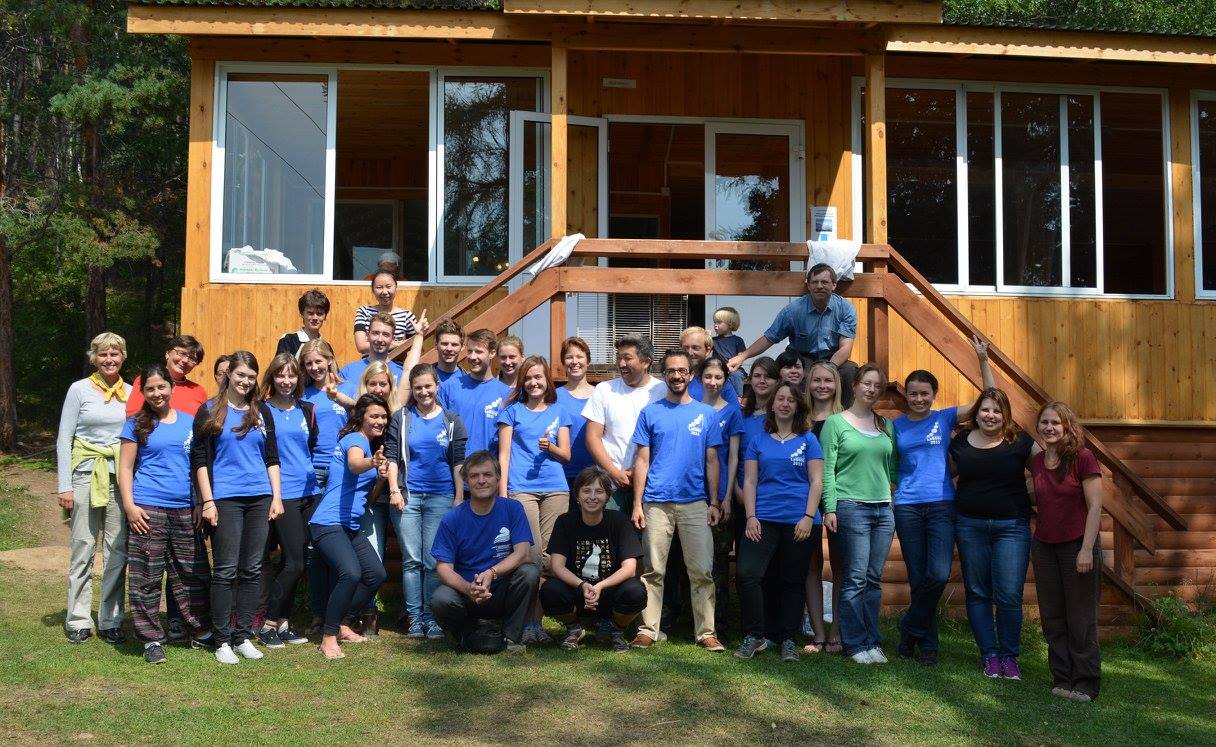Lake Baikal Summer School of Sciences 2015 “Lake Baikal as a model system for the study of global environmental trends" was organized under support of DAAD (“Go East” Program) and Dia-M (lab facilities provider company) and hosted at the Baikal Biology station of the ISU Research Institute of Biology. Over 30 students, post-graduate students and young researchers from Germany, Belgium, Switzerland, China, Japan and Russia were invited to take part in it.
A highly topical school program included lectures and workshops delivered by leading scientists and professors of the ISU Research Institute of Biology, Limnology Institute of Russian Academy of Sciences, Vinogradov Geochemistry Institute, St.-Petersburg State University, Wellesley College (the USA), Lawrence University (the USA), Moscow State University and Zoology Institute of RAS.
In collaboration with Kazan Federal University the international workshop on modern research in molecular biology “Genom's Life: Adaptation Mechanisms” headed by the leading scientists of the Karolinska Institute (Stockholm, Sweden) and the National Institute of Agriculture Science (Tsukuba, Japan) was organized.
All activities contributed to the main idea of the school: education through research. And all participants were engaged into real research projects conducted by the ISU Research Institute of Biology in Baikal area. Students got knowledge and information about the unique ecosystem of lake Baikal, its near-shore territories, its evolution and modern state, as well as students discussed ecological problems the lake faces nowdays. The students also had opportunity to learn more about modern methods of evolution research and mathematical analysis under the special course “Usage of R (programing language) in Water Ecology”. Foreign students were taught Russian language as well.
The activities were conducted under two sections – Water Ecosystems and Soils and Flora Ecosystems. School participants learnt to estimate the structure of soils and landscapes, they studied vertical and horizontal allocation of macrozoobenthos in Baikal andevaluated population structure, behaviour features and thermo-resistance of Baikal endemic amphipoda. It resulted into getting new relevant dataand determinig new types of amphipoda.
The school program also included hiking and expeditions by two vessels - “Titov” and “Valeria” of Limnology Institute - to take benthonic and plankton samples. Hiking to Bolshoy Kadilny Cape impressed the students a lot. In Irkutsk participants visited the Irkutsk Regional Memorial Decembrists Museum to learn more about Irkutsk history.
The school provided its participant – biologists, oceanologists, limnologists and geographers from Europe - with new knowledge, research skills and experience to remember.
















